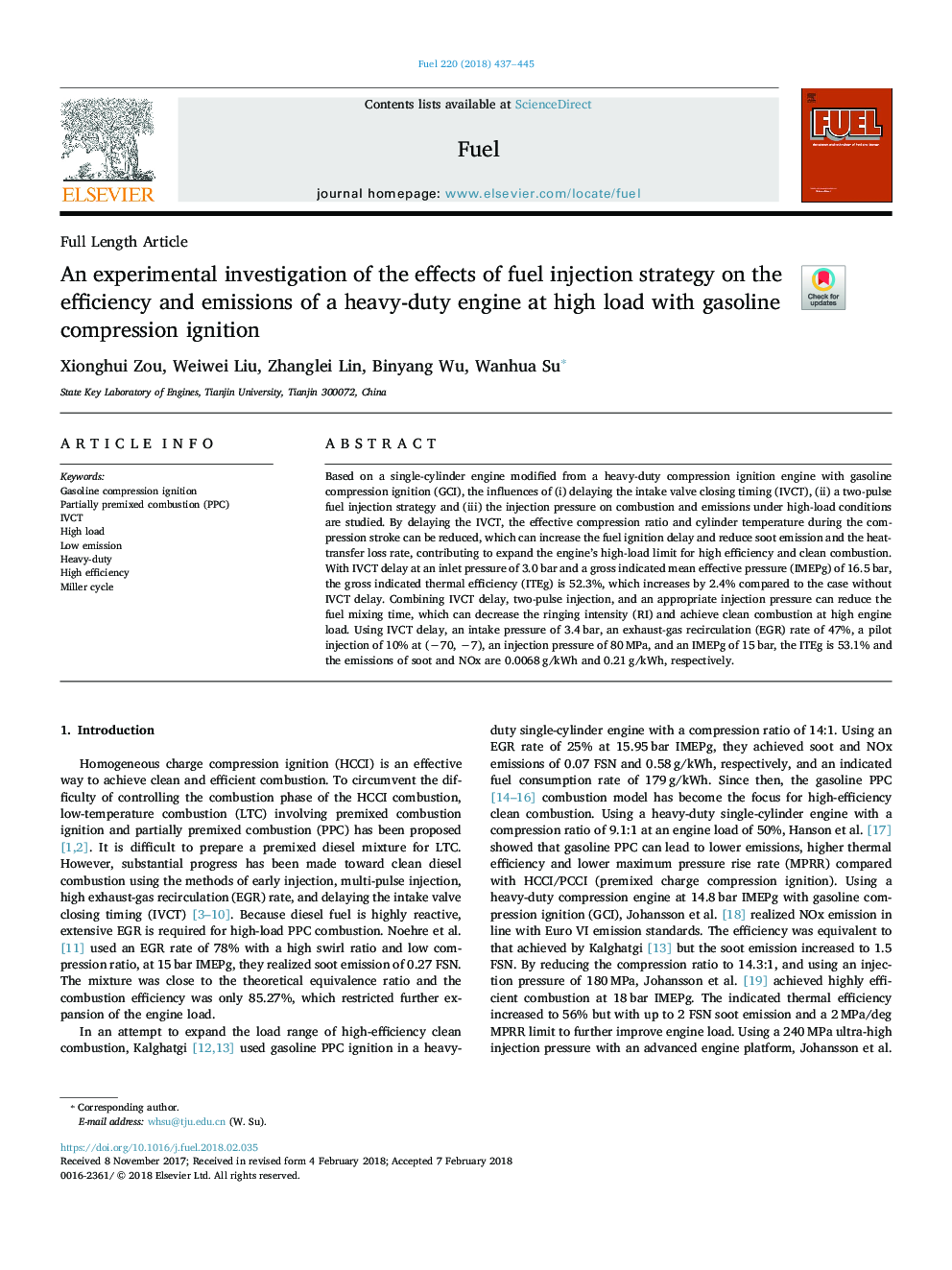| کد مقاله | کد نشریه | سال انتشار | مقاله انگلیسی | نسخه تمام متن |
|---|---|---|---|---|
| 6631688 | 1424944 | 2018 | 9 صفحه PDF | دانلود رایگان |
عنوان انگلیسی مقاله ISI
An experimental investigation of the effects of fuel injection strategy on the efficiency and emissions of a heavy-duty engine at high load with gasoline compression ignition
ترجمه فارسی عنوان
یک بررسی تجربی اثر استراتژی تزریق سوخت در کارایی و انتشار یک موتور سنگین در بار بالا با احتراق فشرده سازی بنزین
دانلود مقاله + سفارش ترجمه
دانلود مقاله ISI انگلیسی
رایگان برای ایرانیان
کلمات کلیدی
موضوعات مرتبط
مهندسی و علوم پایه
مهندسی شیمی
مهندسی شیمی (عمومی)
چکیده انگلیسی
Based on a single-cylinder engine modified from a heavy-duty compression ignition engine with gasoline compression ignition (GCI), the influences of (i) delaying the intake valve closing timing (IVCT), (ii) a two-pulse fuel injection strategy and (iii) the injection pressure on combustion and emissions under high-load conditions are studied. By delaying the IVCT, the effective compression ratio and cylinder temperature during the compression stroke can be reduced, which can increase the fuel ignition delay and reduce soot emission and the heat-transfer loss rate, contributing to expand the engine's high-load limit for high efficiency and clean combustion. With IVCT delay at an inlet pressure of 3.0â¯bar and a gross indicated mean effective pressure (IMEPg) of 16.5â¯bar, the gross indicated thermal efficiency (ITEg) is 52.3%, which increases by 2.4% compared to the case without IVCT delay. Combining IVCT delay, two-pulse injection, and an appropriate injection pressure can reduce the fuel mixing time, which can decrease the ringing intensity (RI) and achieve clean combustion at high engine load. Using IVCT delay, an intake pressure of 3.4â¯bar, an exhaust-gas recirculation (EGR) rate of 47%, a pilot injection of 10% at (â70, â7), an injection pressure of 80â¯MPa, and an IMEPg of 15â¯bar, the ITEg is 53.1% and the emissions of soot and NOx are 0.0068â¯g/kWh and 0.21â¯g/kWh, respectively.
ناشر
Database: Elsevier - ScienceDirect (ساینس دایرکت)
Journal: Fuel - Volume 220, 15 May 2018, Pages 437-445
Journal: Fuel - Volume 220, 15 May 2018, Pages 437-445
نویسندگان
Xionghui Zou, Weiwei Liu, Zhanglei Lin, Binyang Wu, Wanhua Su,
